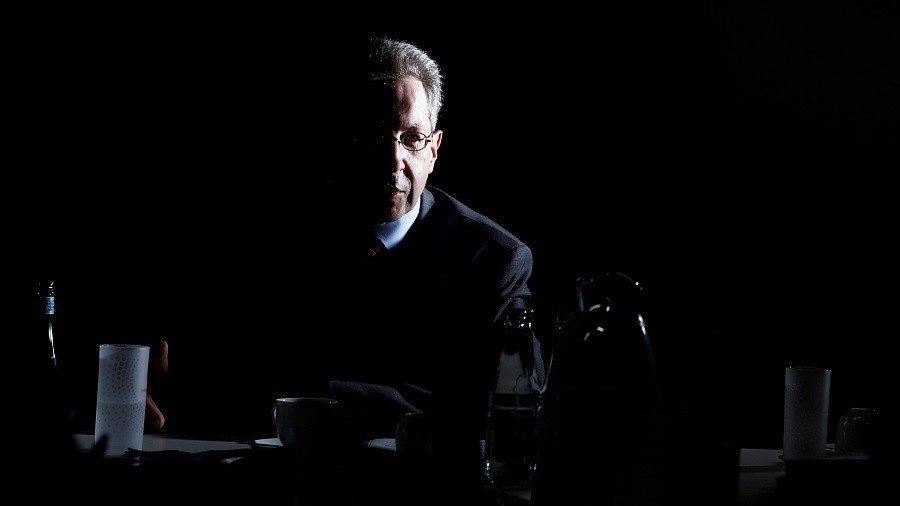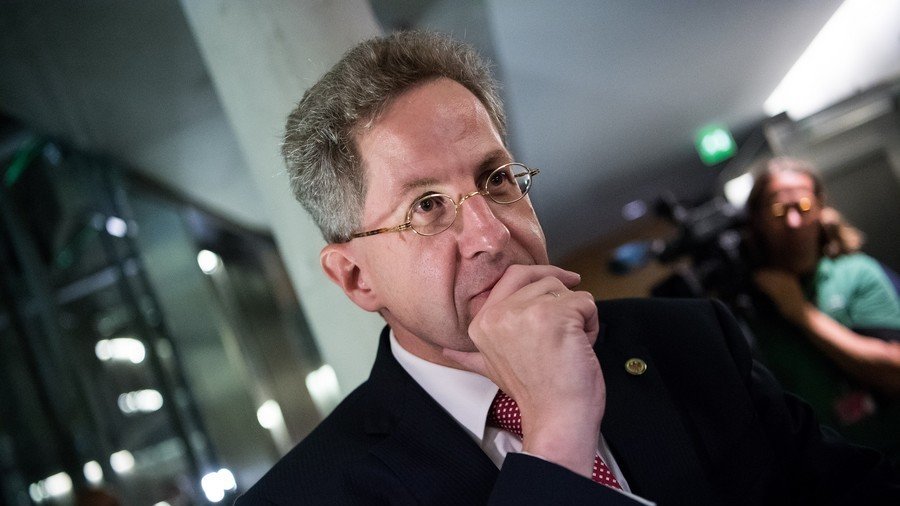Germany’s troubled spymaster gets specially created post in Interior Ministry

The German domestic security chief, who got in hot water for expressing skepticism over media reports of violence against migrants, is to get a newly established post, a remedy for disagreements within the ruling coalition.
Hans-Georg Maassen, the former head of the German domestic security agency, the BfV, will be transferred to the position of special adviser to the interior minister, Interior Minister Horst Seehofer announced, following his meeting with Chancellor Angela Merkel and the leader of the Social Democrats, Andrea Nahles. He will be responsible for “European and international affairs,” according to the minister.
Maassen’s tasks would reportedly include negotiation of repatriation agreements and agreements with the African states on refugee issues, as well as matters related to European security policy. Nahles, meanwhile, emphasized that his future responsibilities would have “nothing to do” with domestic security issues.

The move is the latest compromise on the troubled security chief’s fate, which has recently become a source of controversy for the coalition. The decision would be implemented “swiftly and promptly,” according to the government’s spokesman, Steffen Seibert.
Das Ergebnis des Gesprächs im Kanzleramt heute Abend: pic.twitter.com/O3G07UNT2q
— Steffen Seibert (@RegSprecher) September 23, 2018
Maassen landed in hot water after he questioned reports about violence against foreigners in the German city of Chemnitz, which saw a series of right-wing protests and riots after a local man was stabbed to death, allegedly by a group of migrants. Even though the former BfV head attempted to explain that he only meant to express skepticism over the immediate readiness by media and politicians to accept the videos of violence as authentic, his remarks triggered a massive wave of criticism.
Migrant groups demand Germany’s #Seehofer resignation https://t.co/mQG8lawNZb
— RT (@RT_com) September 16, 2018
The Social Democrats that are part of the ruling coalition in particular actively called for his resignation. Seehofer, to the contrary, supported Maassen and said that he had “full confidence” in the domestic security chief. Eventually, the interior minister agreed to sack the spy chief, but said he would be appointed to the post of a state secretary. The announcement provoked more fury, with some claiming such a transfer would, in fact, be a promotion, as it involves a higher salary. The row within the coalition even led to rumors about a potential governmental crisis.
READ MORE: German domestic spy chief removed, set to take up Interior Ministry post amid migrant row
The newly established post technically would not be a promotion, as Maassen’s salary is expected to remain roughly the same, according to German media. The coalition members also rushed to assure the public that there was no risk of a coalition breakup.
“This has never been an issue in any discussions that I held,” Seehofer told journalists. Nahles also said that the coalition leaders would have never allowed the government to “fall” over “the Maassen case.” She also hailed the new compromise as a “good signal [showing] that the coalition is able to take public criticism seriously and correct its [mistakes].”
Some opposition parties, meanwhile, have expressed dissatisfaction with the coalition’s decision. “The coalition still fails to answer the question of whether it trusts Mr. Maassen or not,” the head of the Free Democratic Party, Christian Lindner said, adding that the government just created a post of a “breakfast director” instead. He also criticized the coalition for being “detached from the real problems” and caring only about “saving its face and mutual appeasement.” Katrin Goering-Eckardt, head of the Greens’ parliamentary faction, also said that the coalition has “solved no really existing problems with this decision but only the one that it itself had created.”
Like this story? Share it with a friend!














